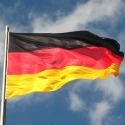Deutsche Telekom and Telefónica Deutschland add fiber to their long-running wholesale fixed access agreement.

Deutsche Telekom (DT) and Telefónica Deutschland (O2) hailed the extension of their long-standing fixed-line network collaboration that will give Telefónica wholesale access to DT's fiber-optic network, including fiber-to-the-home (FTTH), for the first time.
Telefónica has been buying fiber-optic network-based copper lines (VDSL/vectoring) from DT since 2013. The extension of this agreement to cover the next ten years means that DT will provide 1Gbit/s fiber lines to its partner in addition to the existing VSDL/vectoring lines. The two rivals have formed a "contingent" contract that enables Telefónica to sell fixed-line services to customers under the O2 brand.
"This is the first time that a different company has decided to use Deutsche Telekom's FTTH network," DT said.
Dirk Wössner, managing director of Telekom Deutschland, said Germany has "never before seen such a comprehensive agreement on the joint use of FTTH infrastructure."
He said DT will also offer this cooperation model to other companies on the market. "And not only for copper lines, the aim is to also continue the philosophy of open access in terms of FTTH buildout in the future," he added.
Markus Haas, CEO of Telefónica Deutschland, said the long-term cooperation with DT "gives us planning security. In future, we will be able to offer our O2 customers access to the fiber-optic network, especially in large cities. On this basis we can offer our customers first-class convergent products."
The agreement still requires approval from German regulator Bundesnetzagentur and is expected to come into force in early 2021.
Building through 'coopetition'
Wössner acknowledged that this type of "coopetition," or "collaboration under competitive conditions," is common within the industry.
"The buildout of fiber-optic broadband networks is extremely expensive. One kilometer of civil engineering alone costs approximately €100,000 [US$117,000]. Thousands of diggers are required to supply large areas of Germany with the fast Internet. And we need to lay even more kilometers of fiber-optic cable. As other network-building companies, we pay for this in advance in order to earn back these investments on the market. Therefore, the agreement with Telefónica is an important additional lever," he said.
Wössner laid bare how much DT is actually collaborating with its rivals via its wholesale agreements.
"Alongside our financially viable buildout and the subsidized buildout, cooperations have been the third pillar of our network strategy for years. We generated revenues of around €3 billion last year by allowing other companies onto our broadband network. Vodafone, 1&1 and Telefónica account for three-quarters of the volume," he said.
Want to know more about 5G? Check out our dedicated 5G content channel here on Light Reading.
Telekom Deutschland also uses the wholesale service of 14 partner companies, including Deutsche Glasfaser, Süwag and Stadtwerke Münster.
"We are also exploring new directions. This is demonstrated by the establishment of the Glasfaser Nordwest joint venture with EWE or the public-private partnership in the Stuttgart gigabit region," Wössner said.
DT and Telefónica have also been cooperating in the field of mobile communications since 2011. DT connects around 5,000 Telefónica mobile stations with its fiber-optic network. Together with Vodafone Germany, the two operators have also agreed to tackle 6,000 mobile "not spots" in rural areas of Germany.
Fiber needs
DT's VDSL network currently reaches some 33 million households in Germany. However, it said only around 1.8 million households are equipped with fiber-optic lines.
DT said it plans to significantly accelerate its fiber-optic buildout in the coming years. It previously estimated that a full-fiber network covering the whole of Germany would cost between €60 billion ($70.8 billion) and €80 billion ($94.4 billion).
Telefónica has also indicated that it wants to build an entirely new fiber network in parts of the country that have been overlooked by DT and German cable companies. The project is being led by Telefónica Infra, the infrastructure portfolio manager that Telefónica set up as part of its latest restructuring in late 2019.
FTTH Council Europe, an industry association, reckoned just 10% of German homes had access to a full-fiber connection in September last year.
Related posts:
— Anne Morris, contributing editor, special to Light Reading
Read more about:
EuropeAbout the Author(s)
You May Also Like











